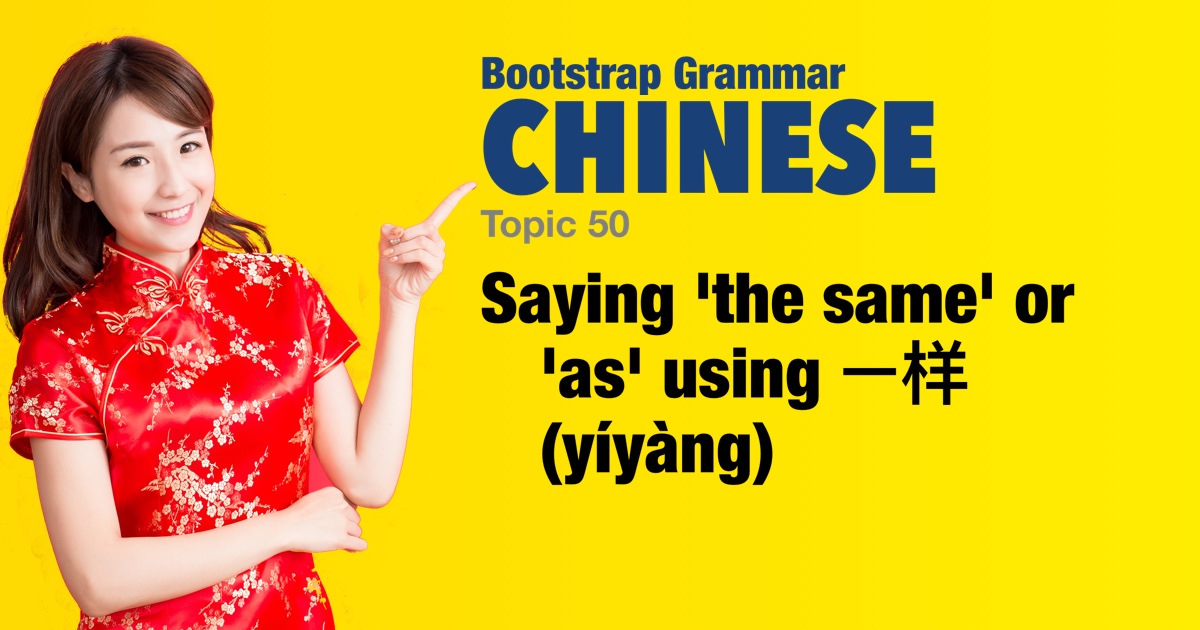Chinese grammar - Saying 'the same' or 'as' using 一样 (yíyàng) |
|||
|
|||
The Chinese word 一样 (yíyàng) is used to express similarity or equivalence. — It equivalent in English is 'the same' or 'equally'. — 样 means 'kind', 'type' or 'appearance'. • A common pattern is [A] + 和 ('and') + [B] + 一样 + [Adjective]. • Alternatively, when [A] is a collective or plural noun the pattern could be [A] + 一样 + [Adjective]. Both patterns can omit the final adjective if the context makes it clear what aspect is being compared. Note that when used with an adjective the connector 很 (hěn) is not required. |
| Examples: | |
|
他和我一样忙。
tā hé wǒ yíyàng máng. He is as busy as I am.
|
|
|
他和他哥哥一样高。
tā hé tā gēge yíyàng gāo. He and his brother are the same height.
|
|
|
这本书和那本书一样有趣。
zhè běn shū hé nà běn shū yíyàng yǒuqù. This book and that book are equally interesting. |
|
|
他和你一样努力工作。
tā hé nǐ yīyàng nǔlì gōngzuò. He works as hard as you do.
|
|
|
她和她妈妈一样漂亮。
tā hé tā māmā yíyàng piàoliang. She is as beautiful as her mother.
|
|
|
我的车和你的车差不多一样快。
wǒ de chē hé nǐ de chē chàbuduō yíyàng kuài. My car is approximately as fast as your car.
|
|
|
我们的家和他们的家基本一样大。
wǒmen de jiā hé tāmen de jiā jīběn yíyàng dà. Our house is basically the same size as their house.
|
|
|
这两个菜一样好吃。
zhè liǎng ge cài yíyàng hǎochī. These two dishes are equally delicious. |
|
|
他们说话一样快。
tāmen shuōhuà yíyàng kuài. They speak at the same speed.
|
|
|
我们的看法一样。
wǒmen de kànfǎ yíyàng. Our opinions are the same.
|
|
|
他们的衣服一样。
tāmen de yīfu yíyàng. Their clothes are the same.
|
|
|
这两个问题完全一样。
zhè liǎng ge wèntí wánquán yíyàng. These two questions are completely the same.
|
|
|
这两个地方几乎一样。
zhè liǎng ge dìfāng jīhū yíyàng. These two places are almost the same.
|
|
 |
|


 Literally: 'He + and + I + the same + busy'
Literally: 'He + and + I + the same + busy'
